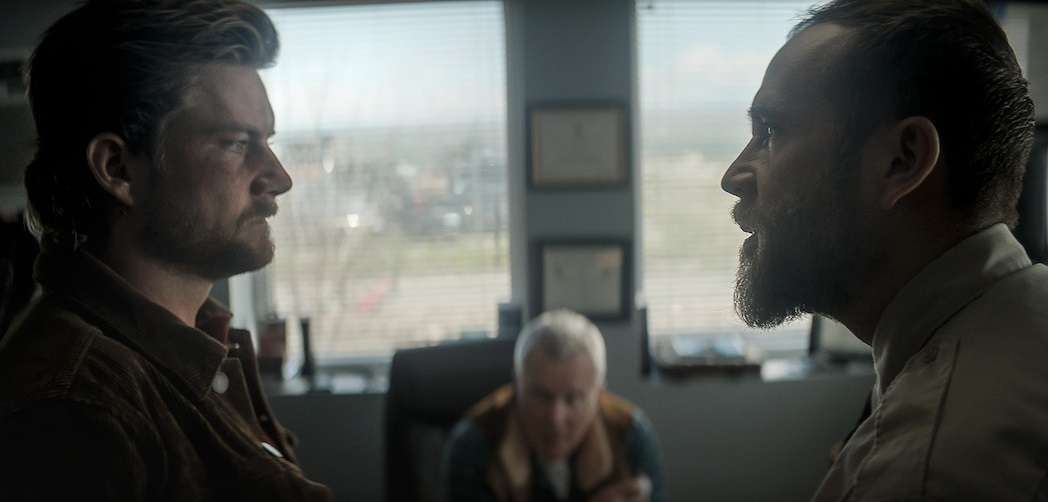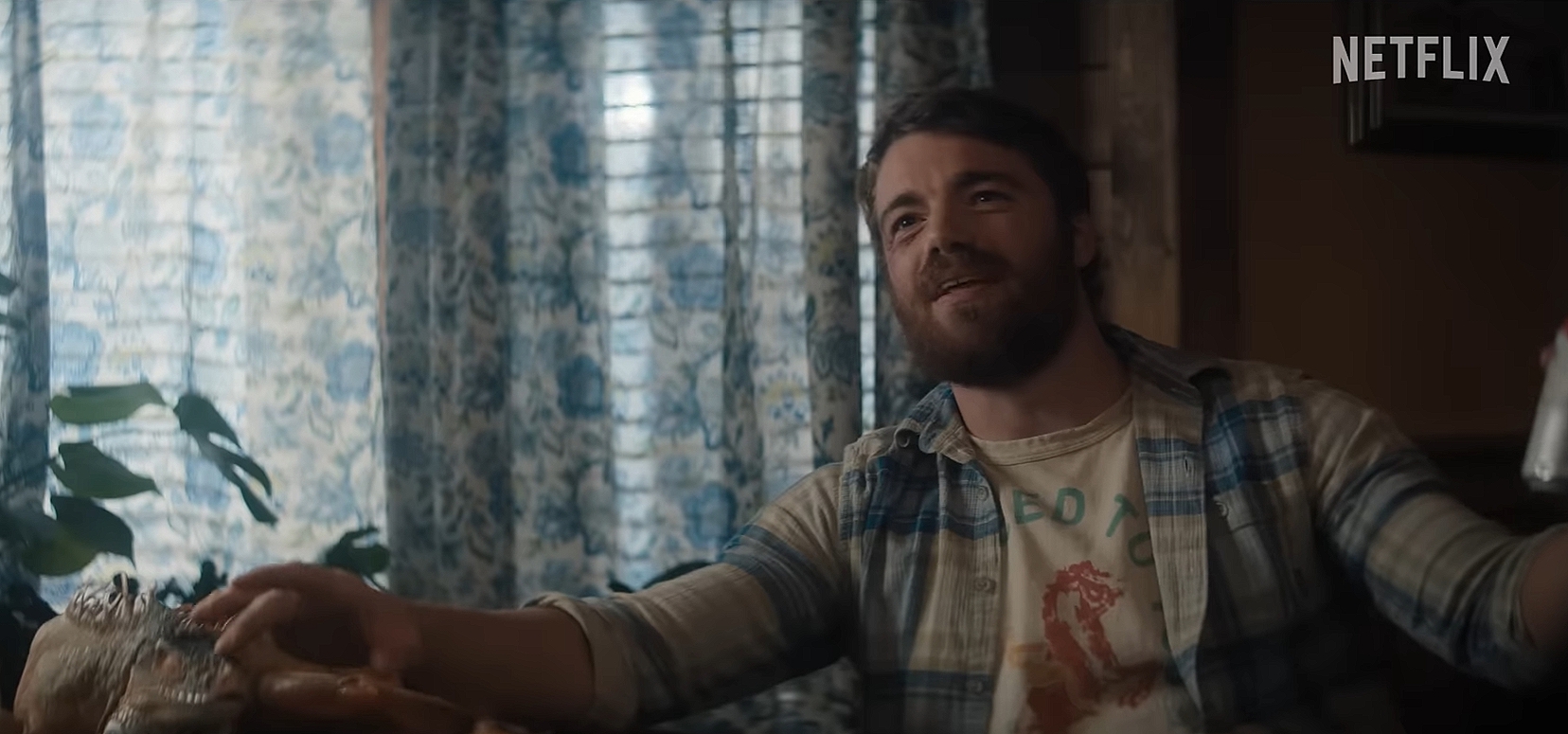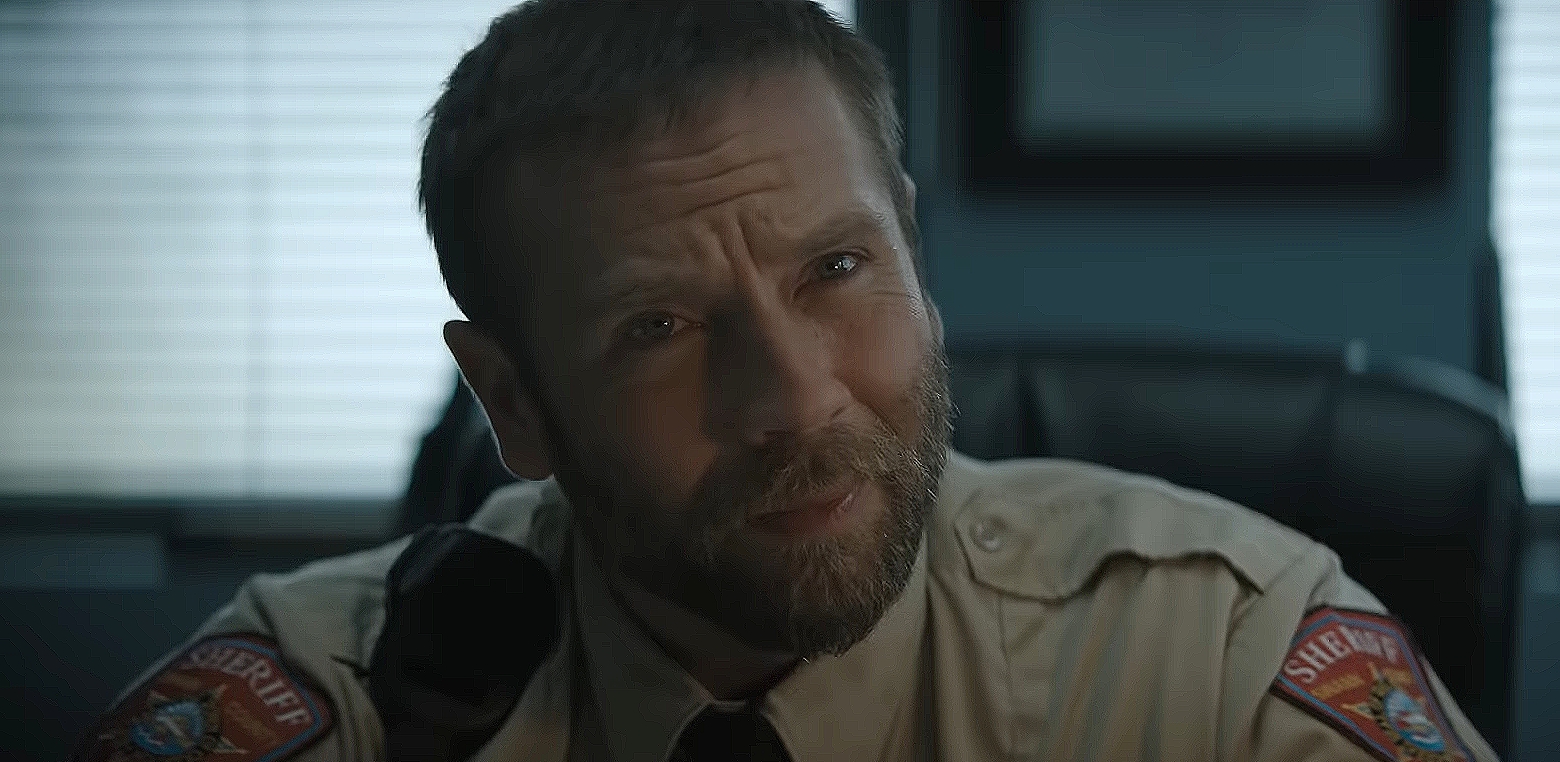Directed by the Indonesian filmmaker Mouly Surya, Netflix’s action thriller ‘Trigger Warning’ stars Jessica Alba as Parker, a skilled Special Forces officer who returns to her hometown after her father’s sudden death. Between dealing with the grief, the responsibility of her father’s bar, and the rekindling of an old flame, Parker finds herself entangled in a violent conspiracy as local thugs wreak havoc in her hometown with military weapons.
Due to its human elements and the portrayal of special forces and terrorists, ‘Trigger Warning’ sometimes seems to hint at being inspired by real military operations, sparking curiosity in the minds of the viewers about whether or not the narrative remains within the realm of fiction.
Trigger Warning is a Fictional Concoction of Action Dramas
‘Trigger Warning’ is not based on a true story. The screenplay, originally written by John Brancato and Josh Olson, focuses on action and has roots in the tradition of high-octane, stylized violence, which pulls it into the territory of sleek action entertainers like ‘Rambo’ and ‘John Wick.’ The original spec script for the Jessica Alba-starrer was penned by Olson and Brancato back in 2016, who described it as a blend of the gritty actioners of Sylvester Stallone and Keanu Reeves.

Despite opting for a rather unrealistic venture, Thunder Road Films, the studio behind ‘Kandahar,’ ‘John Wick,’ and ‘Sicario’ — movies of similar taste — later invited screenwriter Halley Gross to rewrite the screenplay to polish it for an authentic portrayal of a female lead. Adding more authenticity, the film’s New Mexico backdrop further evokes comparisons to other compelling yet fictional narratives like ‘Breaking Bad’ and ‘Better Call Saul.’
Parker is a Realistic Depiction of the Difficult Personal Lives of Special Agents
‘Trigger Warning’ offers a realistic portrayal of the challenges faced by special operatives who — in addition to the physical dangers of staying on missions and fighting terrorists — struggle to reintegrate into civilian life. Parker’s return to her hometown of Creation marks a bittersweet chapter in her life. Like her father, Harry, the death of a close friend or family member is a common occurrence for such dedicated servants of the nation to reunite with other loved ones.

Parker, too, is immediately taken by the nostalgia and complexities of past relationships, evident in the rekindling of her connection with Jesse. Though she finds comfort in her interactions with Jesse, Parker can not help but investigate her father’s accidental death. Moreover, after she witnesses a store robbery and Jesse’s brother Elvis amusing himself with RPG Rocket Fragmentation Grenades, the agent inside her takes over — even in a time of grief — and vows to disrupt their supposed smuggling activities.

Parker’s journey is also one of revenge and resilience after realizing Elvis may have killed her observant father to keep his mouth shut. Deviating from typical civilian heroes who believe in forgiving their culprits or handing them over to law enforcement, Parker embodies a more realistic rage, openly expressing her intent to avenge her father’s death by killing his murderers. This humanizes her character, adding depth beyond the physical confrontations.
Trigger Warning Sheds Light on Corruption and Power Abuse in Small Town
The Netflix thriller paints a bleak picture of small-town life, where despair and frustration run rampant, affecting every soul that comes to rest. Characters like Jesse, Elvis, Mike, and Frank lead mundane, unfulfilling, and lonely lives, something Jesse explicitly admits to, stating that living the remainder of his life feels meaningless. Mike, too, lives with his mother and works in the bar, Maria’s, and — like any other character except Mohamed — has no romantic partner with whom to share his time.

The only characters who are seen with smiles on their faces are Elvis and Senator Swann, two notoriously evil individuals who are, in fact, leeching off others like parasites. The fictional town of Creation creates a strong case of rural areas experiencing high incidences of unresolved crimes despite appearing safer on paper. The narrative showcases how powerful figures like Senator Ezekiel manipulate and exploit their positions, perpetuating an endless cycle of crime and all sorts of illegal activities.

On the Swanns’ end of socioeconomic class, corruption is depicted as pervasive, and contaminating the townsfolk is the easiest way to run their malicious operations. Their influence even taints Jesse, who struggles to maintain his integrity as a swan and as a sheriff. The accessibility of weapons and the prevalence of crime organizations further emphasize the vulnerabilities of small-town settings, making them fertile grounds for criminal activities.
Read More: Where Was Trigger Warning Filmed?


You must be logged in to post a comment.